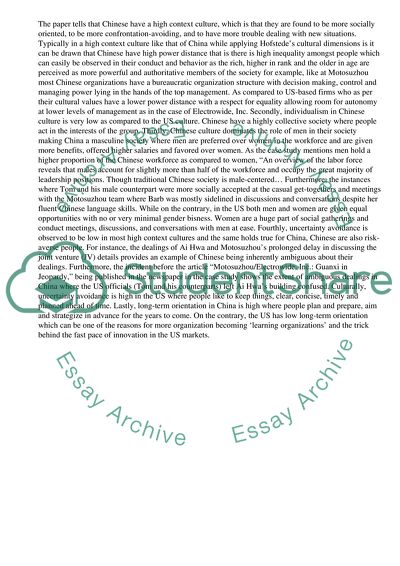Cite this document
(“The Difference in American and Chinese Culture Management Essay”, n.d.)
Retrieved from https://studentshare.org/management/1449662-read-the-case-studies-and-answer-some-questions
Retrieved from https://studentshare.org/management/1449662-read-the-case-studies-and-answer-some-questions
(The Difference in American and Chinese Culture Management Essay)
https://studentshare.org/management/1449662-read-the-case-studies-and-answer-some-questions.
https://studentshare.org/management/1449662-read-the-case-studies-and-answer-some-questions.
“The Difference in American and Chinese Culture Management Essay”, n.d. https://studentshare.org/management/1449662-read-the-case-studies-and-answer-some-questions.


